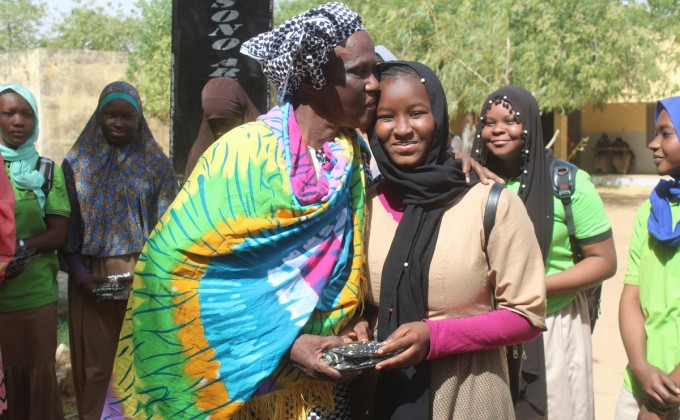

In the Kayes region, the rate of school absenteeism among teenage girls can be partly explained by their lack of information and knowledge about menstruation and its proper management in the school environment, and by the scarcity, or even non-existence, of adequate infrastructures to manage their menstruation in privacy and dignity.
The results of a study on the social acceptability of a project to distribute menstrual hygiene management kits, carried out in 2022 by a Master's student in Public Health, majoring in Global Health, in four high schools in the Kayes and Nioro regions (Bafoulabé Yélimané, Nioro and Diéma), demonstrated the difficulties faced by adolescent girls in managing their menstrual hygiene (GHM) in the school environment. The lack of clean, well-equipped toilets, the distance between them and the classrooms, the impossibility of locking the doors, and the fact that they are mixed, make them unsuitable and unsafe for young girls. What's more, only one of the four schools had a functional infirmary.
This study led to the conclusion that the use of reusable sanitary towels was something that many girls were already doing, and that their use was perfectly acceptable, but that the materials used were inadequate. In collaboration with the school authorities, the Yellen project therefore provided technical support for the introduction of reusable sanitary towels.
This study concluded that the use of reusable sanitary towels was something that many girls were already doing, and that their use was perfectly acceptable, but that the materials used were inadequate. In collaboration with the school authorities, the Yellen project therefore provided technical support for the development of a reusable pad model and subsidized the local manufacture of 10,000 pads. In the first phase, 4,940 of these were made available to teenage girls in the targeted schools. In this first phase, each girl received 4 towels. A further distribution will take place during the next school year.
During the kit distribution sessions, demonstrations were given by the Yellen project's Sexual and Reproductive Health and Rights (SRHR) advisor. Beneficiaries were thus able to consolidate their knowledge of menstrual hygiene, and in particular the use and care of sanitary towels.
At the same time, a conference-debate on menstrual hygiene management organized by the management of the Institut de Formation de Maîtres (IFM) was attended by 150 people (65 girls and 85 boys). It focused on knowledge of the menstrual cycle, the role of boys in GHM and recommended methods for managing menstrual pain. Several teachers also received training on SRHR, Gender Equality (GE) and Gender-Based Violence (GBV). Representatives of political and administrative authorities, civil society, the village chief and technical health services attended the activities and showed their support for SRHR.
Find out more about the project